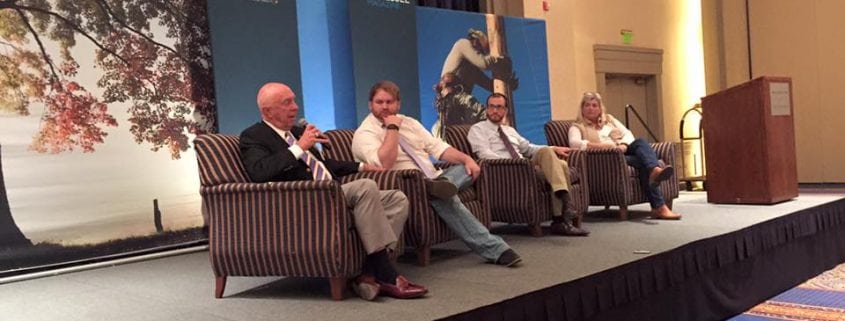Members speak up at 2016 TECA TennCom Conference
The name was not the only change visible in this year’s TECA Marketing, Communications and Member Service Conference, now known as TennCom. A new session allowed attendees to hear from co-op members.
Four co-op members from various backgrounds and all parts of the state participated in the first “State of the Member” panel discussion. Panelists were Wendy Abbott from Sequachee Valley EC, Ashley Brown from Duck River EMC, Ryan Hysmith from Southwest Tennessee EMC and Tarren Quarrels from Tennessee Valley EC .
“It is incredibly important that we understand the needs of our members,” says Trent Scott, Vice President of Strategy for TECA and facilitator of the panel discussion. “We recognize that this was not a scientific study, but it does provide co-op employees with valuable insights into the perceptions, ideas and attitudes of co-op members.”
When asked if the panelist considered themselves customers or members, one responded “customer” and three responded “both.” “I said customer, but if you stress what it means to be a member, you feel like you are not just buying something. You feel like you are getting more for your money,” said Ryan Hysmith, a finance professor at Freed Hardeman University and member of Southwest Tennessee EMC. “I agree,” added Tarren Quarrels, a small business owner and member of Tennessee Valley EC. “I think that education on the benefits of being a member over a customer is important. Explaining that you are a partial owner helps people know that their voice is being heard.”
When asked how they paid their bills, the two older members reported paying online and the younger panelists reported paying in the office. “I have always been an old-school person, and we always paid in person. About six months ago, I did go online and pay our bill, and it is awesome,” said Wendy Abbott. “These were not the responses that I expected, but it is a good reminder that age, or any other demographic, is not an accurate way to predict member preferences,” says Scott.
When asked what source was used to generate a majority of the energy in their home, three of the four panelists responded “hydro.” “It is helpful for us to be aware of misconceptions,” says Scott. “We must not simply ask our members to take action on issues, but we must also help them understand how those issues affect them.”
The panel shared their thoughts and opinions on other topics such as energy efficiency, rates, legislative activities and broadband. Listen to audio of the entire session above.




Comments are closed.